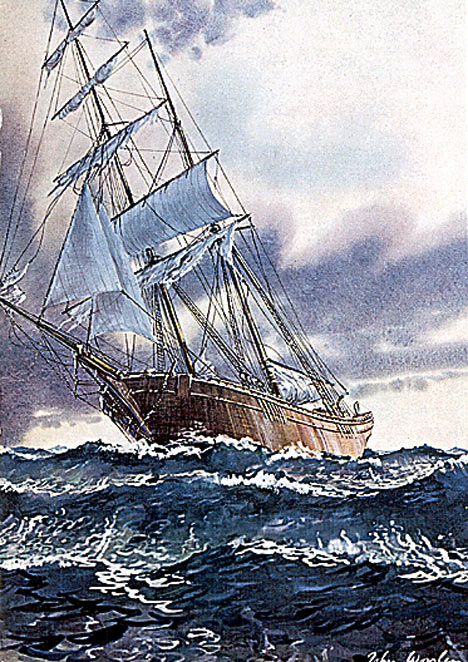The largest part of my career in the media has been in the world of television but my earliest memories of broadcast are from radio. When King George VI died in 1952, I have a clear memory of the radio announcement. I was six years old. The news was given to Princess Elizabeth by Prince Phillip while they were in Africa on tour. They were staying at a lodge called Treetops in Kenya. Again, I was six years old at the time, yet it is all so clear. It was the first time I had encountered death, and the radio announcement had an impact. In 1953, Elizabeth would be crowned Queen. I remember that.
When I was a little boy in St. John’s, radio was the centre of the evening entertainment in our home in the west end. After supper and after the family Rosary, Dad would let me listen to the radio. It became the focus of the evening in our home. We sat by the fireplace in the living room and listened. Remember now those were the days before television came to Newfoundland. It was the early 1950s. Things were very different then. Radio ruled and it was a medium that let the imagination of a young boy run wild. It was marvellous.
One of the programs we listened to regularly was “Strange Stories of the Sea.” I don’t remember the station that aired it, but I remember that it did open with the familiar sound of a ship’s bell ringing. It was the “eight bells”sound that seafarers will know that signified the end of a watch on board ship. In a different context “eight bells” in the marine world is also a signal of death as in “the end of watch.”
As you can imagine that series was about the enduring mysteries of the oceans and as I always tell young reporters that we are a people of the sea. The stories in the program were about shipwrecks and discoveries and ghost ships and unanswered questions. I did a piece for television and Reflections a couple of months ago and the subject was the enduring mystery of the vessel Marie Celeste. You may remember she was an American brigantine discovered under full sail near the Azores with her Captain and crew gone. The Marie Celeste had no one on board. She was empty. I had first heard that story half a century ago listening to the radio with my dad by the fire. The world is odd like that. Things come full circle and sometimes fall into place.
The other radio program that had a major influence on me was John Nesbitt’s Passing Parade. It was on CJON. That was a program where American broadcaster and producer John Nesbitt talked for half an hour without music background or sound effects about what were news clippings and odd stories from across the United States and around the world. It ran from 1937 until 1951 on three different American networks and after 1951 was still heard in syndication in various places including Newfoundland.
I was fascinated because at the time I thought John Nesbitt did all the work himself and that he was sitting around telling stories with his golden mellow voice. In later life I was to find that Nesbitt had a staff of 14 although he did write the final script of the program himself and wrote it usually on the day of the show. It is hard to believe that one man could hold an audience for half an hour just by talking but John Nesbitt did exactly that. The title The Passing Parade also stuck with me. I have used it several times as an adequate description of what we do in news which is to work as observers of what is The Passing Parade.
You can contact Jim Furlong at [email protected]
